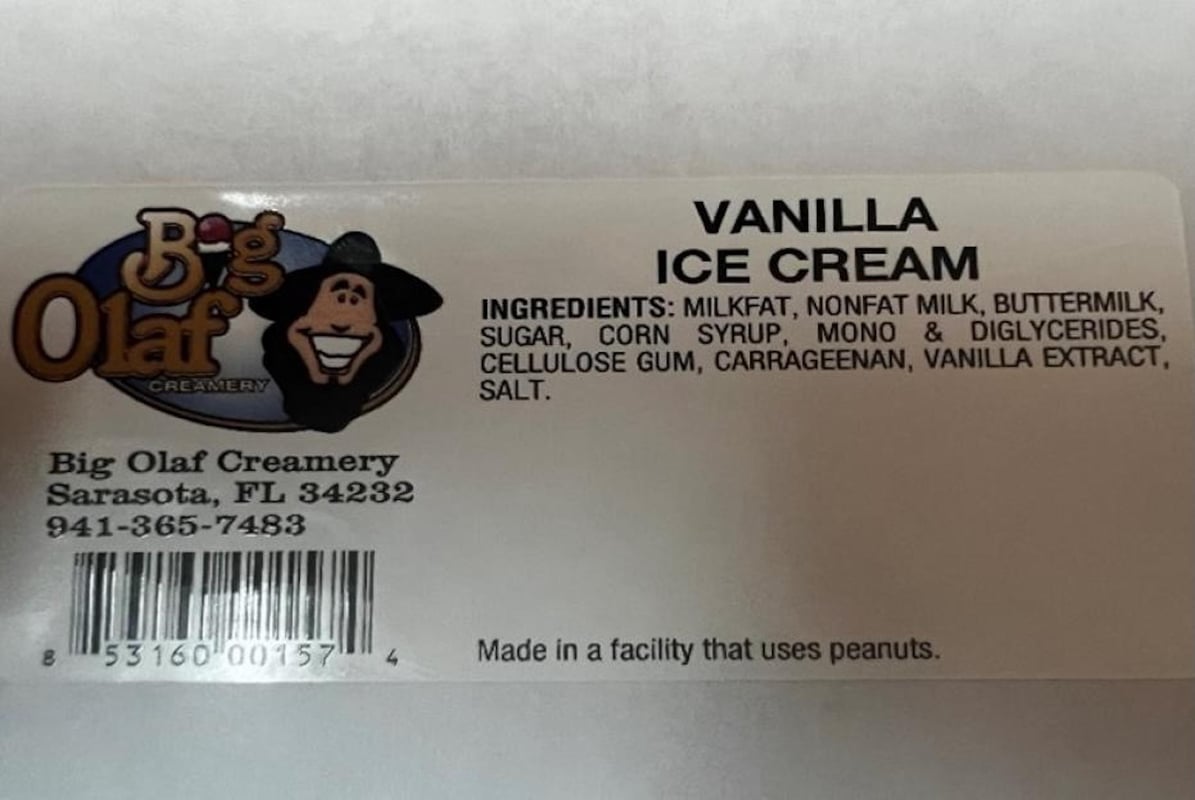Florida Company Recalls All Ice Cream Products Over Possible Listeria Contamination

THURSDAY, July 14, 2022 (HealthDay News) -- Big Olaf Creamery said Wednesday that it is recalling all flavors and all lots of Big Olaf brand ice cream products because they have the potential to be contaminated with Listeria monocytogenes.
While healthy individuals may only suffer short-term symptoms after infection — including high fever, severe headache, stiffness, nausea, abdominal pain and diarrhea — Listeria can cause miscarriages and stillbirths among pregnant women, the company said in a statement posted on the U.S. Food and Drug Administration website.
The products were sold at Big Olaf retailers in Florida as well as to consumers in restaurants and senior homes, and one location in Fredericksburg, Ohio, the company said. All flavors, lots, codes and all expiration dates through June 30 are included in the recall.
"Based on epidemiological information shared by the CDC [U.S. Centers for Disease Control and Prevention] and state officials, Big Olaf may be a potential source of illness in an ongoing Listeria monocytogenes outbreak," the company stated.
One person has died in the outbreak involving 10 states, while 22 have been hospitalized. Eighteen people reported eating ice cream, with 10 of those reporting eating Big Olaf Creamery brand ice cream or eating at locations that might have been supplied by the Florida company.
"This is an ongoing investigation and other ice cream brands not related to Big Olaf were mentioned as a possible source as well," the company noted.
The statement added that the company has been cooperating with state and federal health officials as soon as it was informed about the situation.
Listeria is a bacteria that can cause severe illness when it spreads beyond the gut to other parts of the body, a condition known as invasive listeriosis.
Consumers who have Big Olaf Creamery brand ice cream, which is only sold in Florida, should throw it away, the CDC said in its alert. Clean any areas, containers or serving utensils that may have touched the ice cream. Retailers who have purchased products from the brand should not serve it until further notice. Any equipment, ice cream scoops, serving utensils or areas that may have come into contact with the ice cream should be cleaned.
Symptoms of severe illness typically start within two weeks of eating the contaminated food, but can also start the same day or as many as 70 days later.
Symptoms can include diarrhea and fever, as well as headache, stiff neck, confusion, loss of balance, muscle aches and convulsions.
Pregnant women typically experience only fever, fatigue and muscle aches, but the infection can lead to miscarriage, stillbirth, premature delivery or a life-threatening infection of the newborn.
More information
The U.S. Food and Drug Administration has more information on Listeria.
SOURCES: Big Olaf Creamery, news release, July 13, 2022; U.S. Centers for Disease Control and Prevention, news release, July 13, 2022
Was this page helpful?
Related Posts
Durante la pandemia, los hogares de ancianos usaron menos fármacos para la COVID de lo previsto
MARTES, 18 de julio de 2023 (HealthDay News) -- Aunque los residentes de los...
Climate Change May Bring More Fungal Lung Infections
MONDAY, Nov. 28, 2022 (HealthDay News) -- Fungal lung infections are spreading...
AHA News: This Lawyer-Musician Relearned How to Sing, Note by Note, After Stroke at 42
FRIDAY, July 15, 2022 (American Heart Association News) -- Whether presenting a...
1.3 Million Smokers May Quit if U.S. Bans Menthol Cigarettes
MONDAY, May 2, 2022 (HealthDay News) -- If the United States were to institute a...
